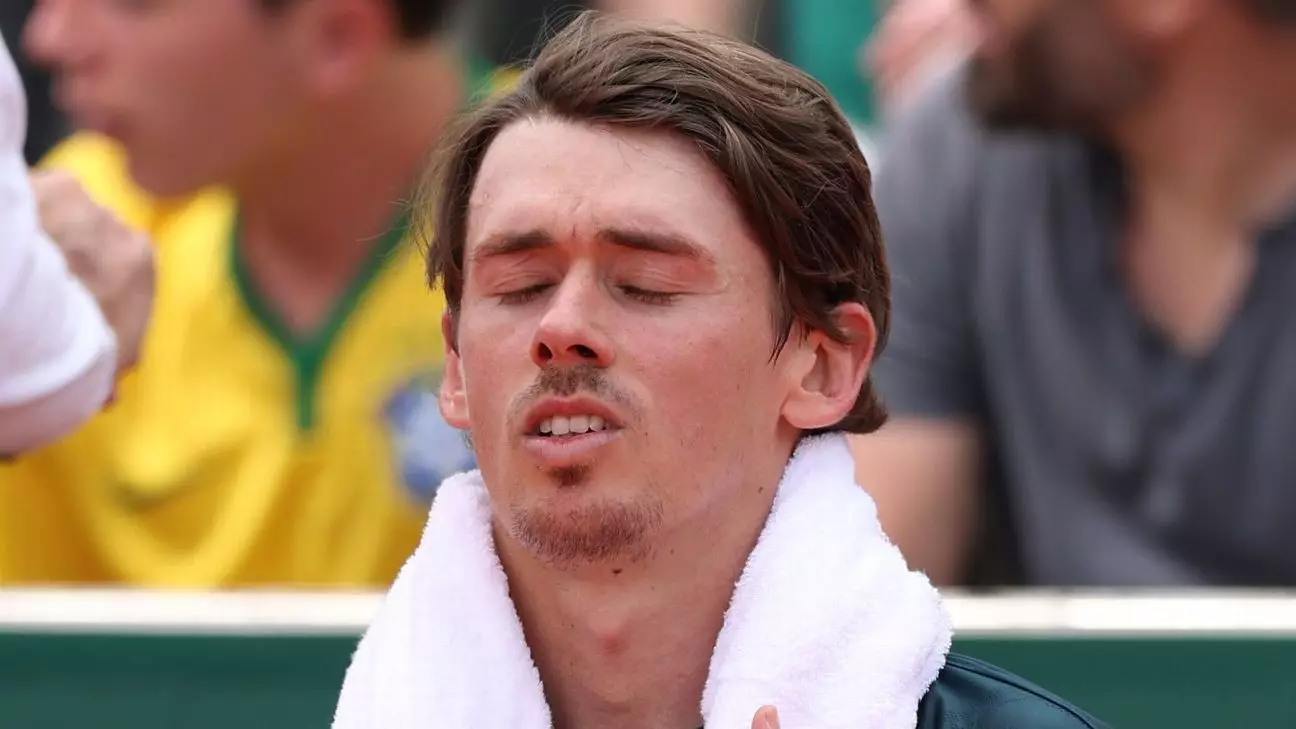The intense grind of the professional tennis circuit has reached a breaking point, as highlighted by Alex De Minaur’s recent exit from the French Open. De Minaur, battling fatigue, has taken a firm stand on a pressing issue: the relentless nature of the tournament schedule. His assertion that the tennis calendar needs to be shortened is not just a fleeting thought; it’s a crucial call to action for the future of the sport. As players face the risk of physical and mental burnout, it becomes imperative to evaluate the implications of an unforgiving schedule on their careers.
The season began just a mere 33 days after the conclusion of the Davis Cup Finals, leaving little room for recovery or rest. De Minaur’s stark remarks following his second-round defeat to Alexander Bublik left no room for ambiguity. “The solution is simple: you shorten the schedule,” he articulated passionately. In this statement lies the heart of a broader issue—players are stretched thin, undermining the very essence of their performance, health, and longevity on the circuit.
Pressure Cookers: The Rat Race of Rankings
Casper Ruud’s comments further underline the prevailing toxic culture within the ATP’s ranking system. His metaphorical description of the rankings as a “rat race” encapsulates the pressure players feel to compete relentlessly, even in the face of injuries. This reveals a systemic flaw in how the sport manages its competitive structure. The mandatory participation in certain events creates a scenario where players are forced to prioritize rankings over their well-being.
Ruud’s shocking loss to unseeded Nuno Borges was compounded by his struggle with knee pain—a common reality for many players. The underlying message is clear: when the price of skipping a mandatory event includes significant penalties like point deductions and reduced year-end bonuses, the system incentivizes players to push through injuries rather than prioritize recovery. This creates a culture ripe for burnout, where athletes sacrifice their health for the sake of rankings, risking long-term repercussions on their careers.
Financial Pressures: The Silent Culprit
Interestingly, the financial architecture of professional tennis contributes to this unsustainable culture. When players are penalized with a 25% cut in their year-end bonuses for missing mandatory events, it emphasizes the ruthless nature of the sport. It’s not just about points; it’s about money. This financial strain compels players to stretch their limits, balancing their physical capacity against potential earnings in a cutthroat environment.
The consequences extend beyond just individual players, impacting the overall health and vitality of the sport. If the elite athletes begin experiencing chronic injuries and turn to early retirements, the sport suffers a loss of talent, star power, and ultimately, audience engagement. The tennis world has to wake up to these realities and recognize that a reformed calendar might safeguard not only current players but also the future of tennis.
A Vision for Change: Sowing the Seeds of Reform
De Minaur’s impassioned plea shines a light on a path forward. A shorter calendar isn’t merely an adjustment; it represents a progressive shift towards a more sustainable sport. It advocates for a balanced schedule that allows players to recover adequately, reducing potential burnout and fostering better performance on the court.
However, the challenge lies not only in modifying the calendar but in overcoming the entrenched mindsets of those governing the sport. Dialogue must occur between players, governing bodies, and stakeholders to create a unified vision for a healthier approach to competition. This collaborative effort could lead to more humane policies that value athlete well-being as much as they do rankings and prize money.
Embracing reforms that resonate with De Minaur’s insights entails acknowledging that players are not mere entertainers at the mercy of a schedule but athletes whose health is paramount. With the right changes, the ATP can protect the integrity of the sport while ensuring its stars shine bright for years to come. The world of professional tennis holds the potential for transformation if it heeds the urgent call for a more balanced and respectful approach to its athletes’ lives and careers.

